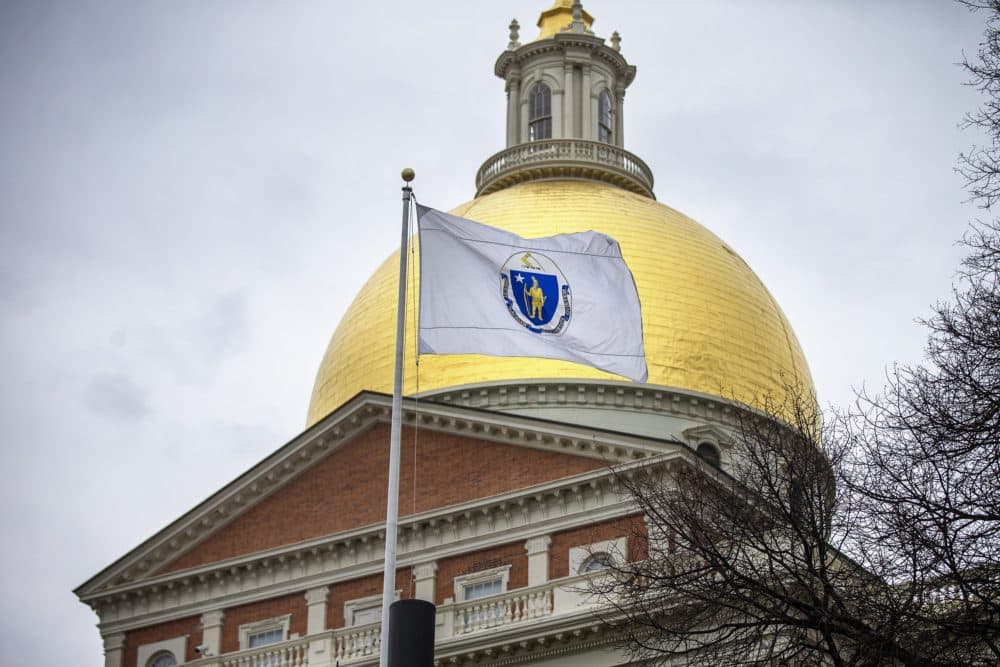Advertisement
Coronavirus Coverage
Lawmakers Want More Data From State Health Dept. On COVID-19 Cases

The Senate on Monday approved a bill to step up daily COVID-19 reporting from the Department of Public Health after adding reporting requirements for state-licensed care facilities, gateway cities, and impacts inside state prisons and county jails.
Under the bill, a redraft of legislation that passed the House three weeks ago, DPH would report daily data on resident and staff COVID-19 cases at facilities licensed by state agencies like DPH and the Executive Office of Elder Affairs, including long-term care facilities, skilled nursing facilities, and assisted living residences. The bill, if passed, would also require daily reports on the number of cases and fatalities among inmates and staff at all correctional facilities.
Staff cases would be broken down by occupation, which Sen. Julian Cyr said is important to understand what types of protective equipment or training are needed.
"This is crucially important, in speaking with both the operators of skilled nursing facilities and the workforce ... there is real concern and desire for information about staff cases, and in some really regrettable cases, staff who have passed away," Cyr told State House News Service on Monday. "Who are those staff? What are their roles? ... Are they RNs? Are they folks involved in cleaning or in the kitchens?"
The data would be reported at a facility-specific level, while maintaining individuals' privacy, according to a Senate official.
Stepped-up daily reporting requirements for the Department of Public Health would include the number of people tested for the virus, the number who subsequently test positive within 24 hours, and a range of demographic information including gender, race, place of residence, age, disability status, and primary language, Sen. Michael Rodrigues said prior to the bill's passage during a lightly attended session.
A task force would also be established to look at health disparities in underserved and underrepresented populations, Rodrigues said, including those based on culture, race, ethnicity, disability status, gender identity, sexual orientation and age. The task force would face an Aug. 1 reporting deadline, with an interim report due by June 1.
The Senate approach would collect data from facilities that are licensed by a state agency, Cyr said, because there is already an established information pipeline through that agency. "DPH or Elder Affairs knows who these facilities are. There's a feedback loop to get this information," he said.
That approach differs from one taken in a Rep. Ruth Balser (D-Newton) data collection bill, passed in the House on April 21, which would extend to facilities like elder housing. That bill remains in the Senate Ways and Means Committee.
Balser, the House chair of the Elder Affairs Committee, took issue Monday afternoon with the Senate's action. "They left behind, the Senate left behind, what I would say is arguably a really important piece," Balser told SHNS, "which is the piece that was in H 4667 around elder facilities and what's going on there."
According to Balser, "maybe 30% of seniors" dying of COVID-19 aren't in nursing homes but in other places such as subsidized senior housing. "We wanted to cover the full range of where elders are living. And that would include elder housing, which they left out," Balser said, referring to subsidized senior housing units.
"In an ideal world that is information that I would love to have," Cyr said later Monday, "but how do you actually realize that data is something we're still figuring out."
"Because of the complexities of gathering some of this data, there is not a clear licensure structure or registration structure between the hundreds of housing authorities in the commonwealth and a relevant state agency, specifically one with expertise in health," the Truro Democrat said. "If we could figure out a way to include other residences where older adults live, we'd like to be able to do that. I felt, and I think most of my colleagues felt, that we take immediate swift action on data collection where we can now."
Balser also questioned whether the Senate's proposed data requirements would apply to the state's two soldiers' homes in Holyoke and Chelsea. More than 80 resident veterans have died at the Holyoke Soldiers' Home since the end of March.
Balser's bill specifically referred to the two soldiers' homes, but that language is not in the legislation passed by the Senate, which refers to facilities licensed by the Department of Public Health. "They don't make it explicit, and when we looked into the statute — there's some ambiguity," Balser said, over whether the soldiers' homes count as a DPH-licensed facility.
Responding to Balser's concern about soldiers' home data, Cyr said that her bill "is still pending in the Senate, so we could take action on that." He added that he felt the Baker administration should already be collecting and releasing detailed data from the soldiers' homes.
Senators tweaked the bill on the chamber floor Monday, sewing in other measures relating to prisons and gateway cities.
A weekly report would be required from each county sheriff on the number of inmates per cell and per correctional facility. Rodrigues cited the high rate of COVID-19 in prisons and said the additional reporting would investigate whether there is overcrowding in prisons.
Another amendment adopted Monday would establish a task force to look at impacts of the pandemic on gateway cities. Community hospitals in some gateway cities were converted by the state to COVID-19 facilities, Rodrigues said, in some cases without consulting the surrounding communities.
During the pandemic, the DPH has released daily reports, usually around 4 p.m.
The number of new reported cases of COVID-19 detected in Massachusetts fell below 1,000 on Monday for the first time since April 5 with just 669 new cases reported. There have now been 78,462 confirmed coronavirus infections in Massachusetts, and the 129 new deaths reported Monday raised the total to date to 5,108.